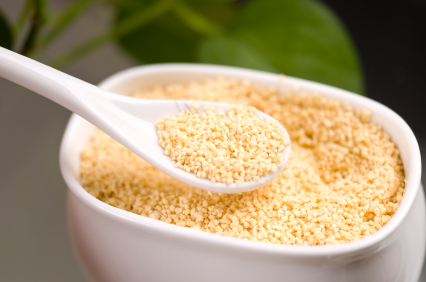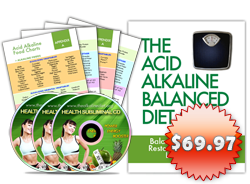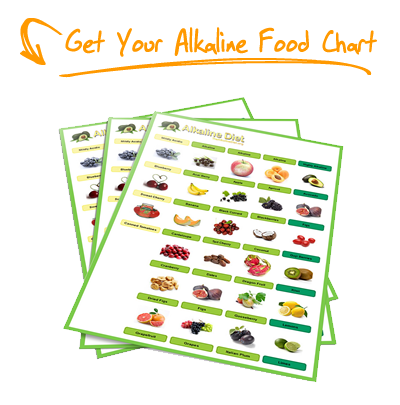Soy Lecithin- Good or Bad for the Health?
Posted on 30. Sep, 2010 by Staff Writer Candy Del Carmen in Alkaline Foods, Blog
If you are eating your favorite chocolate, you may take some time to look at the label and notice that soya lecithin appears very often in most product, not only in your chocolates. Who among us who will pay attention to just small details? But come to think of it: are we not somehow responsible to what we opt to eat and how foods we choose can directly implicate health problems in the long run? This article will point out how lecithin becomes “good” and “bad” for the health and hoping that this piece of information will bring to everyone’s attention how certain ingredients can implicitly affect somehow or another.
What is Lecithin?
Lecithin is the mixture of phospholipids which derive from soybean processing and commonly used as emollient and emulsifier in industrial applications and various foods. In other term, phospholipids are lipids act as building blocks of biological membranes such as cells in all organisms. Lecithin is an emulsifying agent used to keep the texture and consistency of foods such as margarine, chocolate coating, creams and dressings. While in cosmetic and pharmaceutical companies, they also benefit using this lecithin, as well as the textiles, waxes, paints, and lubricant industry as replacement for an expensive ingredient.
Production of Lecithin
To produce soy lecithin, soybeans are tempered and keep the moisture at consistent temperature for one week to loosen the hull. After which, soybeans are cleaned and cracked into smaller pieces so beans are now separated from its hull. After the distillation process and soybean oil is extracted, soya lecithin is now separated from the oil and undergoes steam precipitation process. Quite simply, lecithin is the byproduct of soybean oil through infusing the oil with water, separating the mixture from the oil, and then drying the lecithin.
Health Claims on Soya Lecithin
If you would stop in most vitamin shops, soy lecithin is available as food supplement promoting various health benefits and here are some of them:
- There are scientific claims of how beneficial soya lecithin to human because the choline compound in lecithin can fight high cholesterol, support the liver, and promote weight loss.
- Moreover, choline content found in lecithin also aids in breaking down fats and increases metabolism so it has the potential to convert fats into energy. In fact, the Food and Nutrition Board has recognized the choline as one of the important nutrients that can be added to our daily nutrition.
- There are also studies showed that lecithin can facilitate the cellular regulation with its significant effects on brain improvement. On the other hand, it has to be tested if it can treat several brain related disorders such as dementia, Alzheimer’s, and amnesia.
- Lecithin can also work well in breaking down the cholesterol to very small particles to prevent the build up to arteries and vein walls. There are also health claims how lecithin can keep the unwanted fats to disperse in water and put off the build up of cholesterol to liver.
Although lecithin is widely available in different forms, soy lecithin granules are recommended as the best way to get enough of this nutrient and it is very easy to prepare. Just stir the soy lecithin granules into your milk or juice; however, it will not dissolve in cold drinks unlike in hot foods.
Health Implications of Lecithin
The implication of deriving lecithin from soy is that it is made through 90% genetically engineered processing with the use of some toxic chemicals. For example, a chocolate manufacturer has to use soy lecithin in order to reach the consistency of the production preventing the separation of cocoa butter and cocoa in the final process. Lecithin is a fatty source and maybe crucial for health.
Moreover, for people who have not heard on the researches found linking soy products to ovarian cancer, many studies have shown the significant effect in health of consuming soy in the long run. The main reason is the genistein substance with pythoestrogenic properties which is said to be one of the causes of ovarian cancer. The main cause of this killer disease to women is too much estrogen and if soy act as estrogen, there is no way it can be beneficial to health, most especially to women who have health issues.
What is even more alarming is that even organic products labeled as non-genetically modified organism or non-GMO soy lecithin can also contain GMO legally because the sources are limited. The main source of lecithin is soy in most countries like United States, so it is difficult to check if the lecithin is genetically engineered or not.
Several years ago, the Cornucopia Institute put pressure on the USDA for an update with its guidelines on organic pertaining to using non-GMO soy lecithin on all organic food products since it is now widely available since 2004. Meaning to say, there is no way that organic manufacturers will continue using GMO soy lecithin with their produce.
Healthy Options for Soy Lecithin
Now, the use of sunflower lecithin gives all the manufacturers a healthy option as replacement for deriving emulsification process from soy lecithin because it can be extracted without any harmful chemical solvents such as acetone and hexane. It is the only type of lecithin that is obtained as chemical-free and raw. Not to mention that it is wonderful source of essential fatty acids such as phosphatidylethanolamine which increases speed in memory retention, and phosphatidylinositol which is also good for cell membrance. Likewise, fatty acids are vital to health in preventing cardiovascular diseases because it can break down fats that may build up in artery walls. There is a reason for people who have soy allergy to have better and healthy options because sunflower lecithin is harvested with no added chemicals and 100% GMO free.
We cannot dispute the fact that lecithin can be found in various variety of food as nature puts it to be there are natural emulsifier. Nevertheless, you have to be cautious and selective because many foods which have lecithin are the culprit as these foods contain high cholesterol and fats leading to killer diseases. Most processed foods have lecithin and these are foods worth avoiding and should be excluded on your daily budget. That all being said, it is only you who can decide whether you would like to put some garbage into your stomach or produce a stunning and healthy body for choosing the right selection of diet that provide good nutrition.





angie
13. Aug, 2011
I have a “Whole Body Cleanse complete 10-day cleansing system with probiotics” and on the box one of the “Other ingredients” is soy lecithin. And since I am a women, is this cleanse not safe for me to take? How about for a male?
valerita Kellman
09. Apr, 2012
hello,
I recently began using soy lecithin and soy milk. I used the lecithin to help with cholesterol. I have never heard about sunflower lecithin. How do you get this?
Carys
14. Mar, 2017
Much of this article appear unfounded. Genistein is an isoflavon, and it is not found in the lecithin fraction. GMO is not a concern in the sense that protein is not found in the lecithin fraction. And why should I believe that sunflower seed oil/lecithin is not associated with hexane or acetone? Retract and rewrite the article.
Carys
14. Mar, 2017
Addendum: phosphatidylethanolamine and phosphatidylinositol are not fatty acids. And cardiovascular disease (atherosclerosis is implied) is not caused by a moderate intake of cholesterol and fats directly, although both are involved in the disease process. And different types of fat have different impact, To link licithin with unwanted fats is unfounded, e.g. cacao butter is HDL/LDL neutral. And of cause cholesterol is not a plant sterol, it appear only in animal products like egg yolk and shrimp, and should mainly be considered health promoting to the extent it is even bioavailable. Fats do impact HDL/LDL and cholesterol though. Curiously in the context of the article, isoflavones (in the protein fraction of soy) improve lipid profile and protect LDL from oxidation.